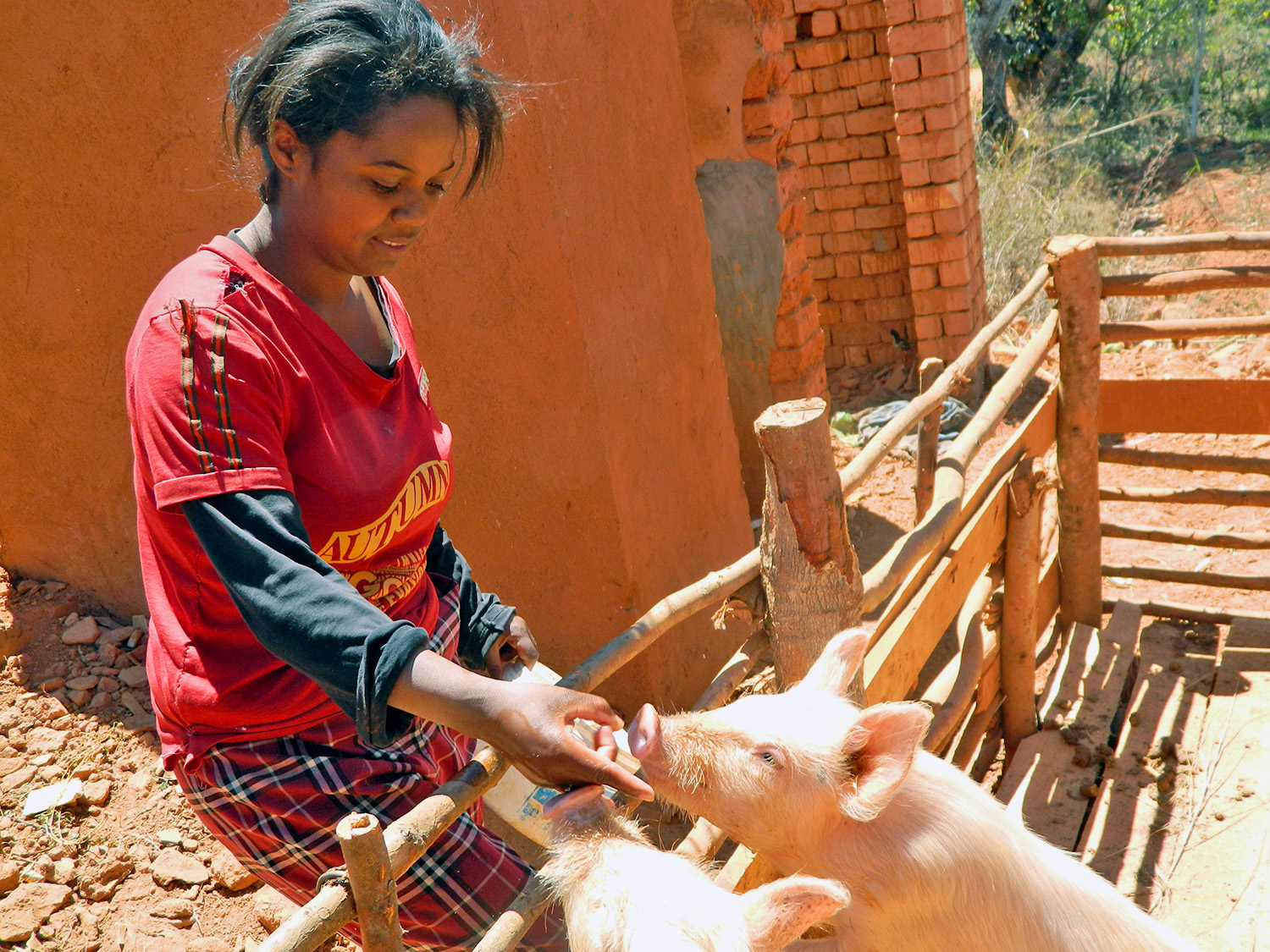Name: Liliana Lova Rahoaritsalamanirinarisoa
Age: 25
Location: Ambohimanga Rova
Does your spouse/partner live with you? No.
What is your primary job? Primary school teacher. ![]() from interim primary school teacher
from interim primary school teacher
What is your monthly salary? 70,000 ariary (US$32) and 32,000 ariary ($15) from private French lessons. 102,000 ariary ($47) in total. ![]() from 50,000 ariary ($23)
from 50,000 ariary ($23)
What is your household’s total income - including your partner’s salary, and any additional same sources? 482,000 ariary ($221). My father earns 180,000 ariary ($83), my big brother earns 150,000 ariary ($69) as a ticket collector on a bus and my mother earns 50,000 ariary ($23). ![]()
How many people are living in your household - what is their relationship to you? Nine people, this includes my parents, my daughter and I, and three brothers and two sisters.
How many are dependent on you/your partner's income - what is their relationship to you? All of them depend on our four salaries. ![]()
How much do you spend each month on food? 300,000 ariary ($138) ![]()
What is your main staple - how much does it cost each month? Right now, we eat the rice we harvest, so we don't need to spend that much. ![]() Rice - 140,000 ariary ($63)
Rice - 140,000 ariary ($63)
How much do you spend on rent? Nothing, we live for free in the old church. ![]()
How much on transport? 120,000 ariary ($55) for the bus, as I have to go every week now. ![]()
How much do you spend on educating your children each month? 100,000 ariary ($46). ![]()
After you have paid all your bills each month, how much is left? There are always more expenses than income. Right now, the new expenses are books for my studies - 30,000 ariary ($13) a month - and I need to save money for a computer. ![]()
Have you or any member of the household been forced to skip meals or reduce portion sizes in the last three months? No. ![]()
Have you been forced to borrow money (or food) in the last three months to cover basic household needs? No. ![]()
She received a pay raise after being promoted from a trainee teacher to a primary school teacher, and is supplementing her income by giving private French lessons. She has also begun courses to become a lawyer.
“Right now, our situation is much improved,” she said. "My mother also found a job as a caretaker of the children in the village school, and we are harvesting our rice, so we have more money and don’t need to spend so much on food. "The only shortage I have now is time. I have a lot of work to do, and every Saturday I have to travel to Antananarivo [the capital] for my courses. Also, new expenses are on the horizon, as the university has told me that eventually I will need a computer for my studies.”
She lives in a church with her mother and father - the village priest - her two-year-old daughter and her five younger siblings. They also raise chickens and pigs to supplement the family's four salaries, which must stretch to feed the nine-member household.
The daily walk to school for Rahoaritsalamanirinarisoa is 10km, round trip.
“The best news I’ve had recently was when a TV crew saw my picture on the [IRIN] website and came to make a film about me!”
*Exchange rate as of 19 April 2013 (2,175 ariary to 1 US dollar)
< December 2012
This article was produced by IRIN News while it was part of the United Nations Office for the Coordination of Humanitarian Affairs. Please send queries on copyright or liability to the UN. For more information: https://shop.un.org/rights-permissions





